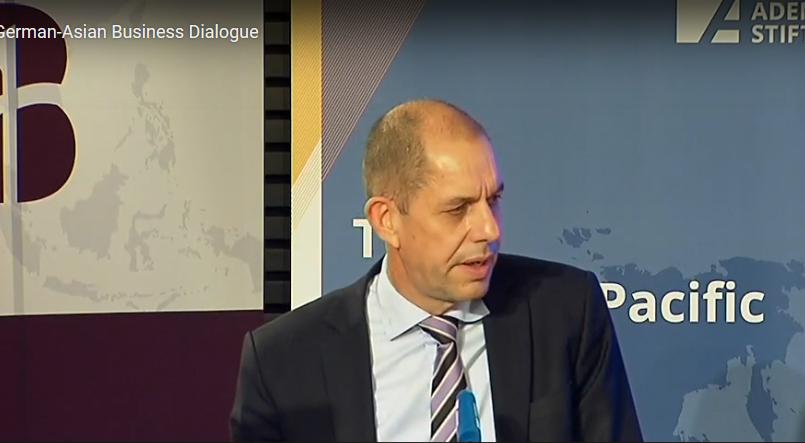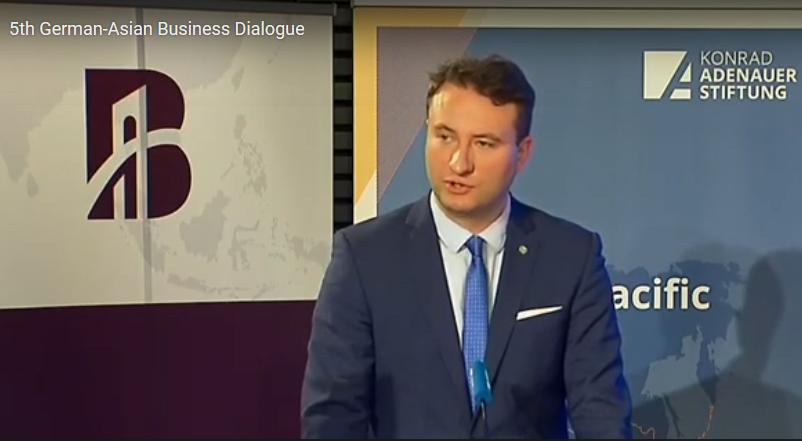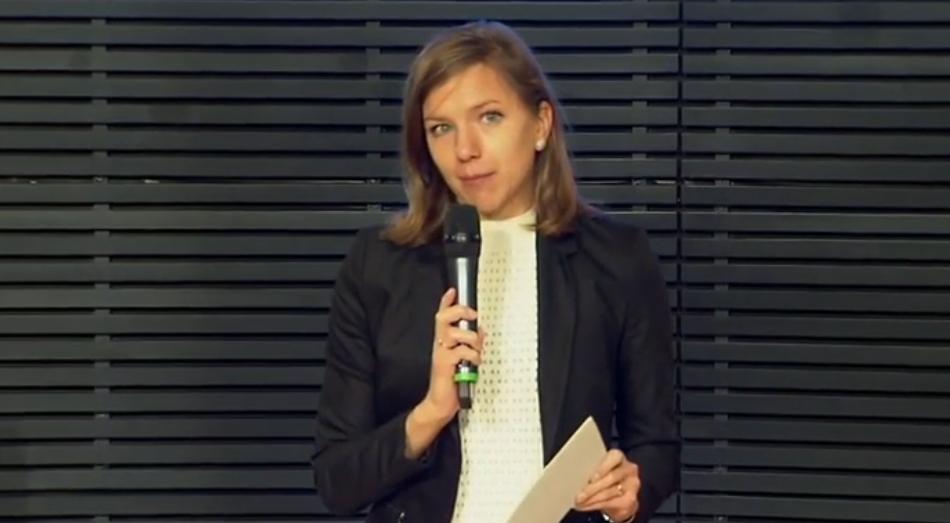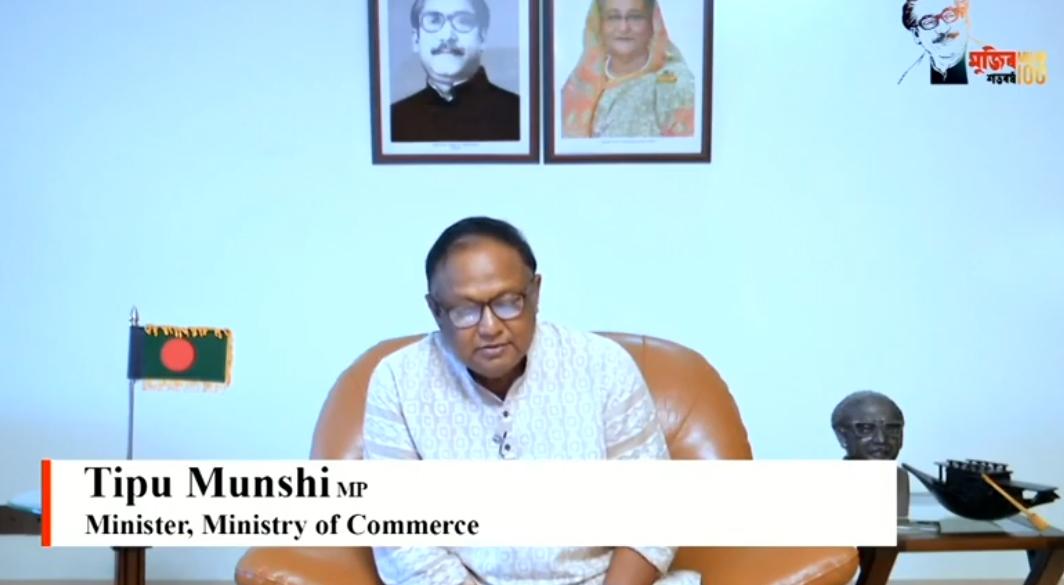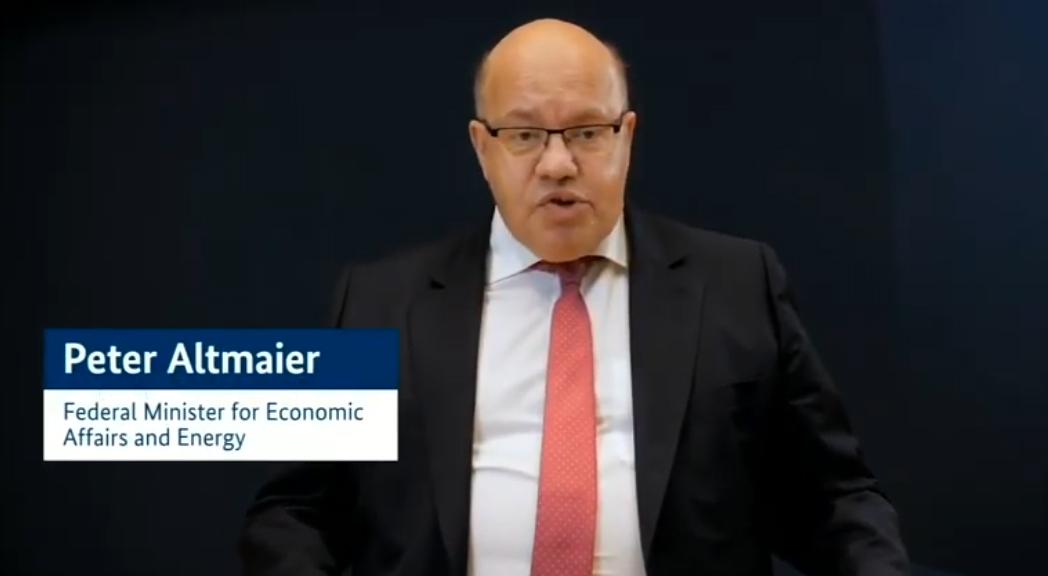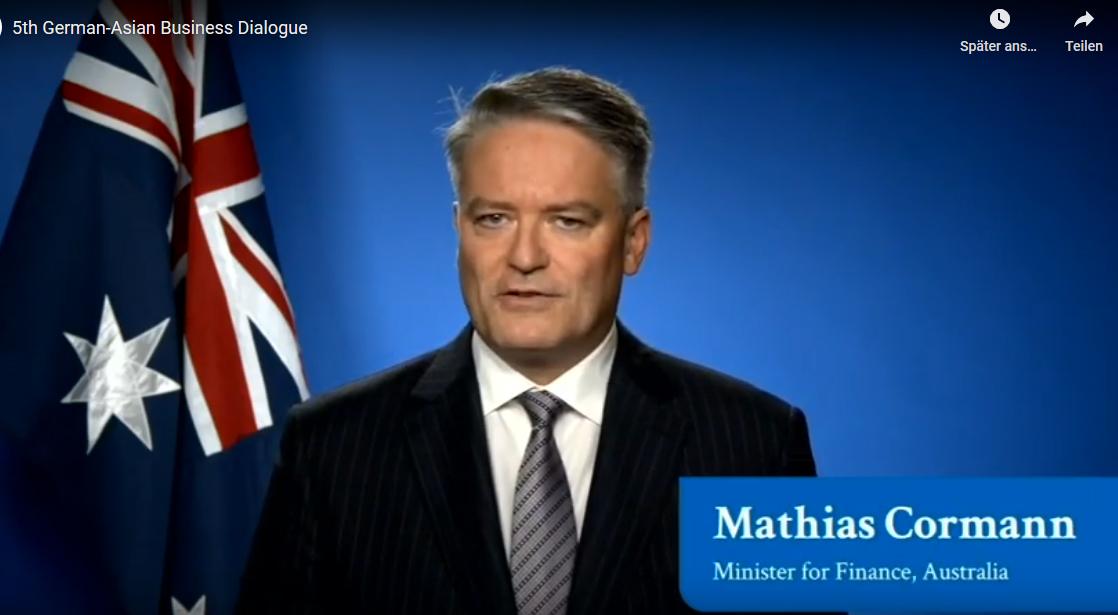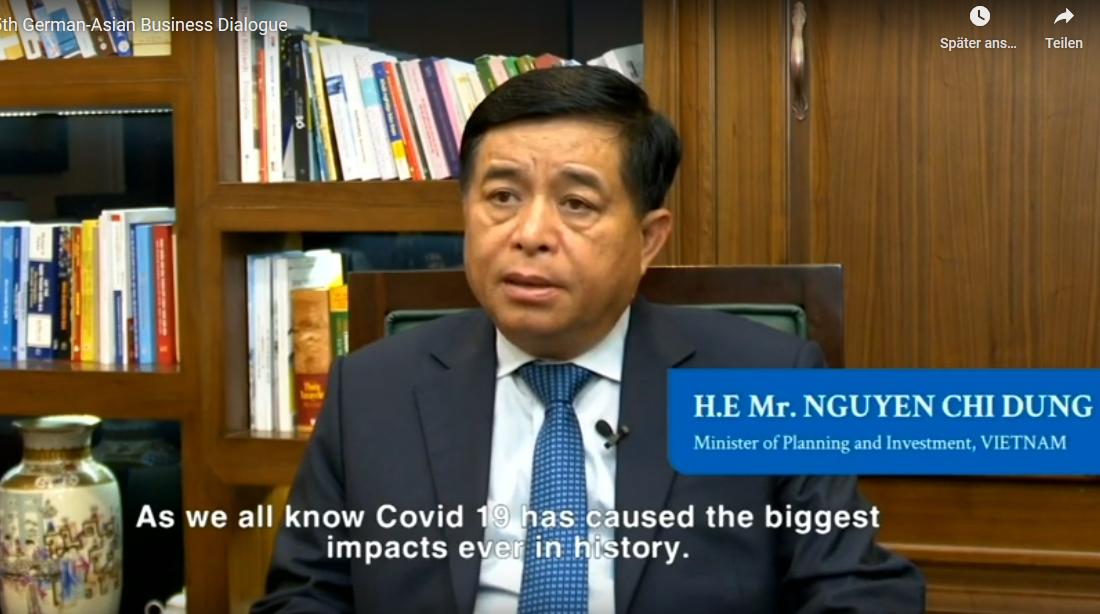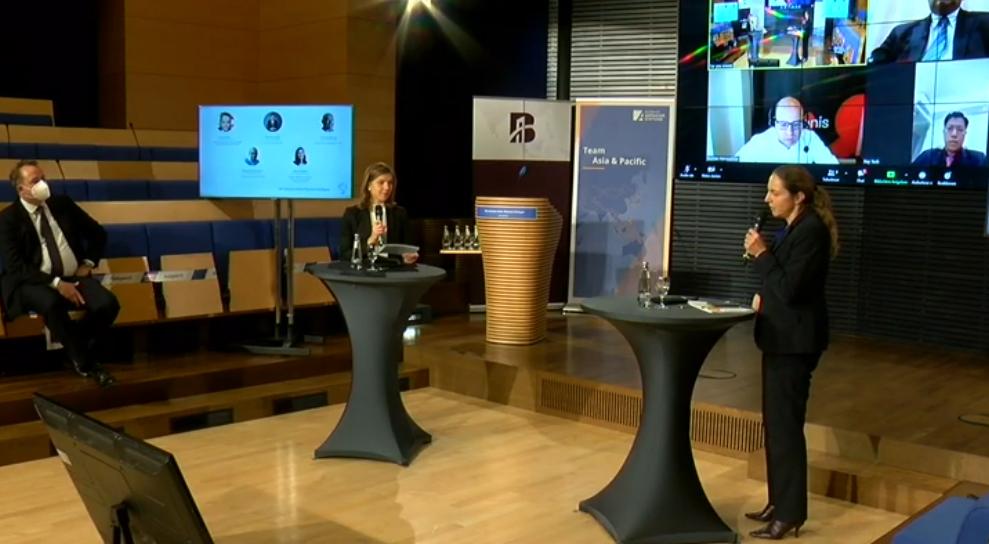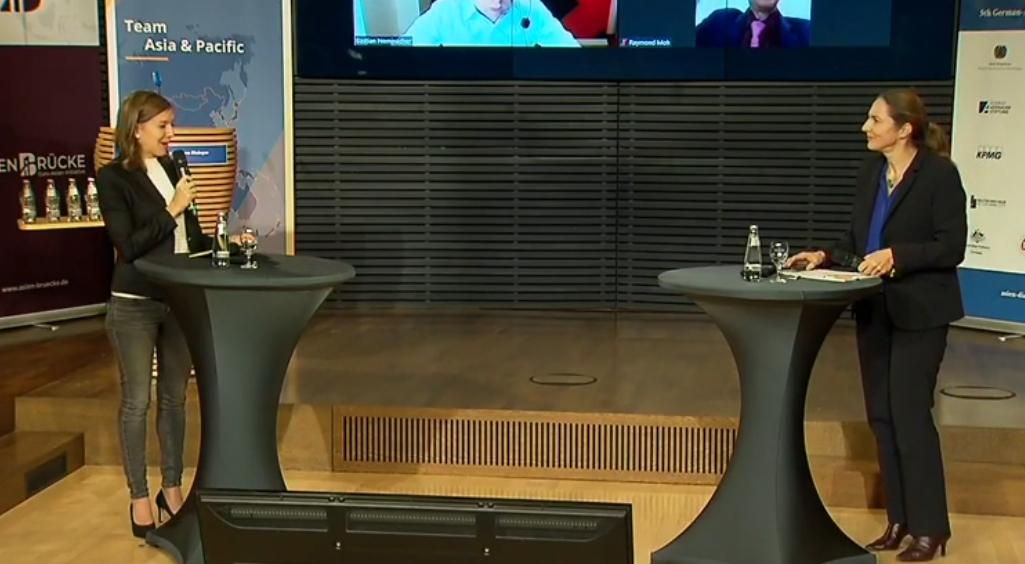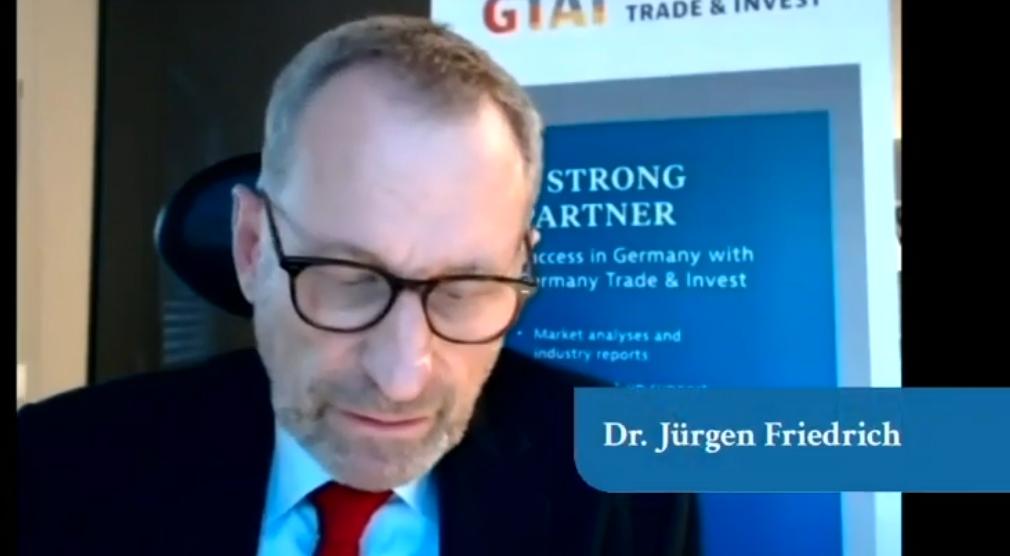The 5th German-Asian Business Dialogue organised by Mr Mark Hauptmann, Member of the German Parliament, took place on the 4th of November 2020 and was supported by Konrad-Adenauer-Foundation. This time the discussions and exchanges between politicians and the private sector from both regions went digital with online panels and virtual networking opportunities. High ranking Ministers from various countries, such as Mr Peter Altmaier, German Federal Minister of Economic Affairs and Energy, Mr Mathias Cormann, Australian Minister of Finance, Mr Nguyễn Chí Dũng, Vietnamese Minister of Planning and Investment, Mr Tipu Munshi, Bangladeshi Minister of Commerce were engaged in the ministers dialogue. On a second business panel, representatives from the private sector such as Ms Almut Rößner from OAV (German Asia-Pacific Business Association), Mr Georg Seitz from KPMG and Raymond Moh, from BioMind elaborated on the impact of the global pandemic and how it reinforces the need for cooperation between Germany and Asia.
On behalf of Konrad-Adenauer-Stiftung (KAS) Dr. Gerhard Wahlers, Deputy Secretary General of KAS and Head of the International Division, welcomed all participants and highlighted the importance of Asia for Germany’s economic development. He encouraged everyone to “widen their view” on the various dynamic countries in Asia at large and to look beyond China. With KAS being present in over 20 countries in Asia the foundation believes there is no “one-way street” but that the region provides insightful examples and learning opportunities for Germany on topics such as innovation, digital economy and energy. Hence, KAS supports platforms for exchange between the two regions.
According to Mr Mark Hauptmann, the current crisis presents the chance for a deepened connectivity of the two regions: “What can Germany and Europe learn from Asian countries in handling the pandemic?”
In a keynote speech, Dr Parag Khanna, Managing Partner of FutureMap and author of the book “The Future Is Asian: Global Order in the Twenty-first Century” summarised the main developments regarding relations between Europe and Asia. Despite the global trend of regionalisation as the new globalisation in certain areas (such as food production) seen during the early days of the pandemic, digital connectivity is an example of globalisation despite existing frictions. Hence, regionalisation is simply a new anchor in a world that is deeply interconnected. Dr. Parag Khanna described the rise of Asia as one of the defining developments of this decade – a development which the EU already takes into account by shifting from “looking west” to increasingly “looking east” towards Asia. Trade between the two regions exceeds EU-US trade and the EU’s Asia connectivity plan additionally supports Asia’s development through financial support, among others – with more willingness and openness for further cooperation from both sides.
Even though the Ministers partaking in the Dialogue came from a very diverse set of countries they agreed on the way forward: Crucial are open markets, a rule-based global trade order, Free Trade Agreements and providing the right framework for Foreign Direct Investments. There was no doubt about the fact that there is no economic recovery without controlling the pandemic.
During the panel discussion with business sector representatives from Asia and Europe the following trends were highlighted: the need to adapt rapidly to new challenges, to embrace technology as an opportunity, to diversify supply chains and not to overlook the aspect of human resources and to keep the team connected - especially with a progressing pandemic. Mr Georg Seitz, from KPMG for example pointed out the importance of keeping employees engaged, healthy and motivated in times of home office. Mr Bastian Nominacher, from Celonis SE named creativity and technology as important topics that would help every entrepreneur prosper even in these difficult times. The business sector presented itself with an optimistic mind-set and called on everyone to also see opportunities in the current global health and economic crisis.
Dr. Jürgen Friedrich, Chief Executive of Germany Trade & Invest once again underlined the economic potential of Asia with soon to achieve 40% of the world’s GDP. He rightfully concluded that Covid-19 increased the need for Asia-EU cooperation and dialogue.



